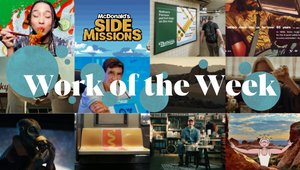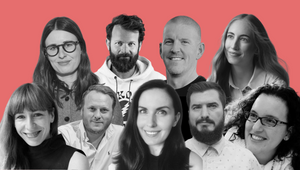
Brands Need to Accept That They No Longer Shape Culture, Which Means They Can No Longer Exploit it

Megha Sthankiya, senior culture strategist, The Marketing Store explores the impact of cultural appropriation by brands.
For many years now, mainstream culture has adopted and appropriated the practices, rituals, beliefs, artifacts and language of Black and Asian communities.
From bindis at festivals to Gucci turbans on the catwalk, white models sporting faux braids on Instagram, to the popularisation of clothes, jewellery and tattoos featuring cultural iconography, brands have been quick to spin a profit from the cultural ‘cool.’
But they’ve also been slow to give back. The Marketing Store’s If Not Now, When? Report found that 86% of Black consumers and 71% of Asian consumers feel that their culture is exploited for profit, compared to just 46% of white consumers.
By creating a pool of products and services with just enough cultural ‘flare’ palatable for a white audience, whilst completely marginalising the originators, brands are exploiting not just the communities that birthed these ‘trends’, but also their own position within the cultural zeitgeist. A position that is increasingly under threat.
In the 80s and 90s, brands were responsible for curating—even dictating—the cultural cool. Now, in an age of cancel culture and performative activism, the zeitgeist has become a tightrope brands must tread with increasing care, whilst simultaneously playing catch up to trends already established by online communities. The stakes are high for those who step out of line. Just look at the backlash against Pretty Little Thing; a brand that has long commoditised Black fashion and culture for a predominantly white consumer base, when they posted a poorly designed Black Lives Matter Instagram post without making any form of donation.
At The Marketing Store, we work hard to elevate and protect the cultural legitimacy and relevancy of our clients’ brands. We do this by creating an exchange between ourselves (brand-agency) and the community we’re targeting.
To do this, we must start to think of our brands or agencies as communities in their own right—a hub of people, resources, skills and opportunities.. More often than not, our audiences tell us they don’t just want free trainers or discounts on your clothes, they want access to your brand. They want long- term investment into their culture, to connect with experts, and they want opportunities to create and learn.
By reframing our thinking in this way, we set the foundation for a fair exchange between our brand’s community and that of our intended audience.
Here are three principles we believe brands should follow if they want to create ethical and equitable cultural exchange:
Represent them
At The Marketing Store, our rule is: at every stage of the creative process—from insight, to creative to production—we partner with our audience. This means, as we develop a campaign, we’re better positioned to catch any cultural faux-pas before the work leaves the door. It also allows us to create equity within our own industry. From day one, we’re engaging with our intended audience from a place of shared experience and opportunity.
Understand them
Quantitative surveys only tell you so much. When faced with a new brief, take the time to have face-to-face (or Zoom, thanks COVID) conversations with your intended audience, in their communities and in their homes. Get to know them, and their networks. Speak to their family and friends. The key to building an exchange lies in understanding what they want and need from you. For our award-winning adidas GLITCH campaign, we did exactly this. Playing Xbox with our audience in their homes to creating bespoke content with them to making them the stars of the campaign. By involving them in the process from the beginning, we collaborated to create something that felt authentic and credible to the masses, and empowering to them.
Elevate them
Once you’ve identified what they want, focus on building in an exchange that has roots—something that can grow over time. Make it clear the short-term and long-term opportunities partnering with your brand will offer them, and explore a way to make them concrete. When we launched the adidas Football Collective, we ensured every individual featured in the launch film would have a long-term partnership with the brand. For some, this means future investments into refurbishing their community facilities, for others this will be training opportunities with our roster of football clubs and giving their community access to products. This is a fundamental principle for the way the adidas Football Collective chooses to behave, and we – and the client – ensure everyone delivers on this.















